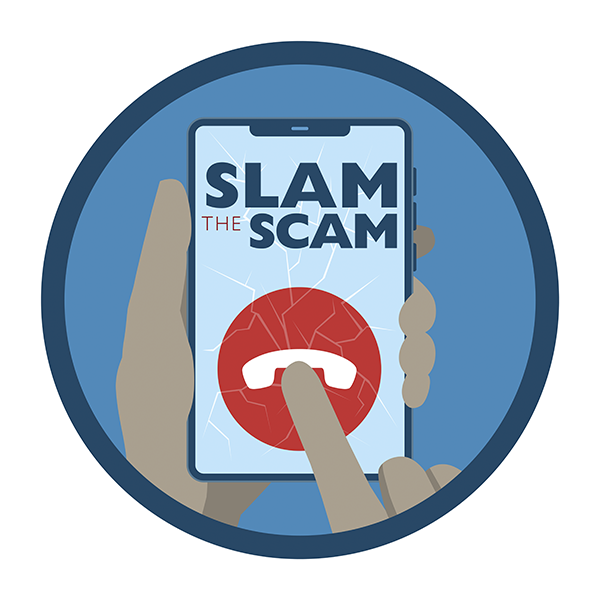Slam the Scam: How to protect yourself from scammers
LOS ANGELES – In 2023 alone, 2.6 million cases of fraud were reported to the Federal Trade Commission (FTC), with victims losing a total of $10 billion to scammers.
Imposter scams remained the top fraud category, with reported losses of $2.7 billion. These scams involved people pretending to be a bank’s fraud department, a relative in distress, a well-known business or a technical support expert.
Scammers also pretended to work for law enforcement and government agencies, such as the Internal Revenue Service (IRS), Medicare or Social Security Administration (SSA).

March 7 is National Slam the Scam Day. Image courtesy of SSA
On National Slam the Scam Day, SSA provides tips on how to recognize Social Security-related scams and prevent scammers from stealing your money and personal information.
Recognize scammers. They may:
- Pretend to be from an agency or organization you know.
- Say there’s a problem or promise a prize.
- Pressure you to act immediately.
- Tell you to pay in a specific way.
How to avoid a scam:
- Remain calm. Talk to someone you trust.
- Hang up or ignore the message. Do not click on links or attachments.
- Protect your money. Criminals will insist that you pay in a hard-to-trace manner, such as with a gift card, prepaid debit card, cryptocurrency, wire transfer, money transfer, or by mailing cash.
- Protect your personal information. Be skeptical of a contact you didn’t initiate.
- Spread the word. Share your knowledge of Social Security-related scams. Post on social media using the hashtag #SlamtheScam to share your experience and warn others.
Help protect your loved ones and people in your community by:
- Educating them about government imposter scams. Let them know they shouldn’t be embarrassed to report if they shared personal information or suffered a financial loss. It is important to report the scam as quickly as possible.
- Sharing the SSA Scam Alert fact sheet and helping educate others about how to protect themselves.
- Report Social Security-related scams to the Social Security Office of the Inspector General.
The more aware you are of how criminals may try to scam you, the more power you have to protect yourself and your hard-earned money. If you feel you have been a scam victim, contact the Social Security Office of the Inspector General (OIG) or visit ssa.gov/scam. Report a scam here.
More tips on how to protect yourself from scammers are available on the FTC website.

